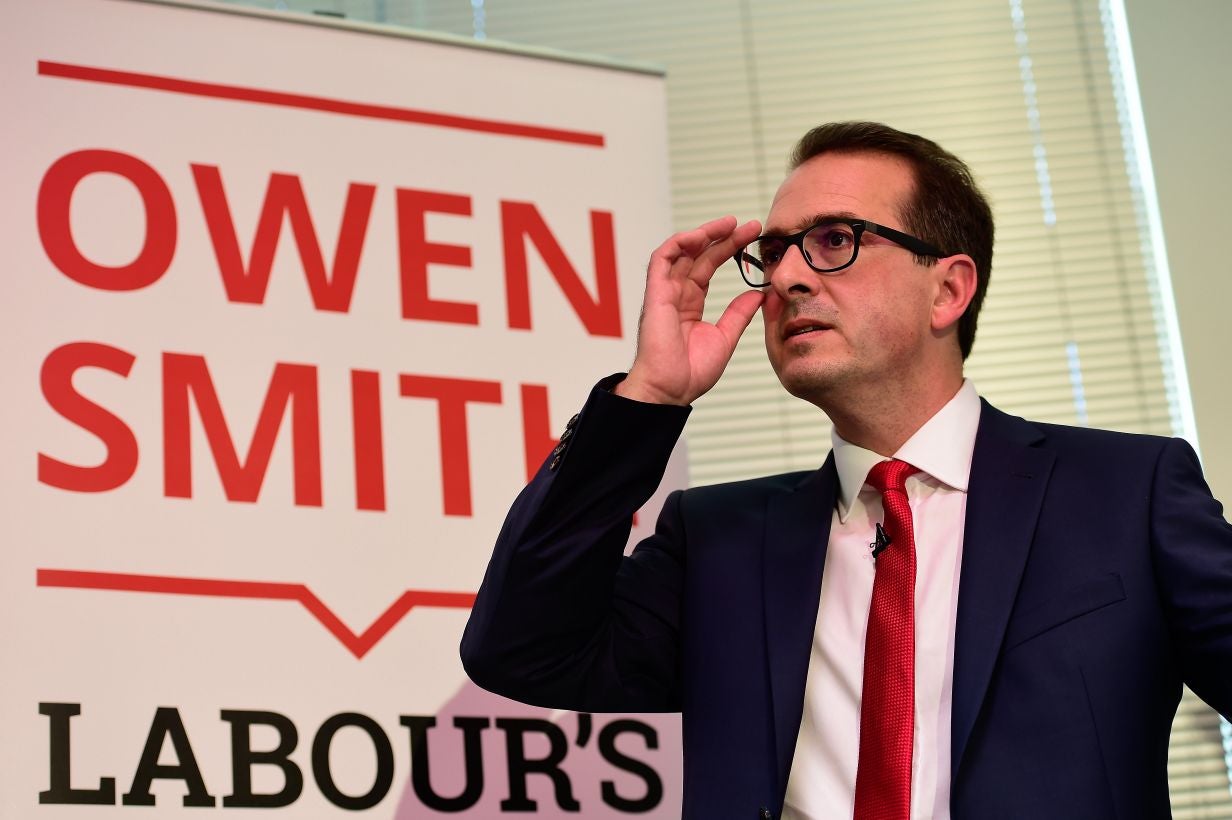Labour split likely to end in disaster for both sides, study finds
Some MPs have privately mooted a split

A Labour split would likely end disaster for any new breakaway party and leave the remainder of Labour itself seriously diminished, a new electoral study suggests.
A poll by YouGov found that if anti-Corbyn MPs split from Labour to found a more centrist party they would likely gain around 13 per cent support, leaving Mr Corbyn’s Labour on 21 per cent.
Likewise, if Mr Corbyn split from Labour with his supporters and stood at election on a left-wing platform, they would win about 14 per cent of the vote, with the centrist Labour remainder on about 19 per cent.
Hypothetical polls are notoriously difficult to interpret and subject to huge caveats, but the results illustrate some of the challenges that splitters would face under Britain’s electoral system.
Under First Past the Post, even significant shares of the vote often translate into few seats when they are spread thinly across the country.
Vote shares of 13 or 14 per cent spread across the country would certainly not guarantee a new party any seats at all; Ukip won 12.6 per cent of the vote in 2015 and won just a single constituency.
On a uniform swing whichever side retained the Labour brand – along with its core voters – would likely keep between 150 and 200 seats, according to the Electoral Calculus method.
The First Past the Post system gives a huge incentive for MPs to stick with the party, and could, if widely recognised, keep the warring factions together – for better or for worse.

“The sum total of the support which the two rival Labour parties would be slightly more than the current Labour party,” Anthony Wells, research director at YouGov, wrote in an analysis.
“Under a proportional voting system this might be a good thing. Under First Past the Post this would likely be disastrous for them, splitting the Labour vote and allowing the Conservatives (or UKIP, or whoever) to gain more seats from them.
“Exactly how bad it would be we cannot tell without knowing how their votes would be distributed geographically, whether individual Labour MPs would be able to retain the Labour vote in their own constituencies. It is likely to be pretty nasty though.”

It was reported at the weekend by the Daily Telegraph newspaper that anti-Corbyn MPs planning a split from Labour are considering a legal challenge to gain control of the party’s name and assets.
Shadow chancellor John McDonnell accused the plotters of trying to “subvert” the Labour leadership election.
The renewed quandary about how Labour should proceed comes as Mr Corbyn dismisses talk of an electoral pact with the Green party – for now.
Some Labour politicians, as well as Green MP Caroline Lucas, have suggested a deal at the next election in order to end the split in the left-wing vote against the Conservatives.
One proposal would see the Greens stand down in some marginal seats where Labour could beat the Tories; Labour would in return stand down in areas where the Greens might win.
Though the Labour leader did not rule out a pact with the Greens in the future, he said cooperation was currently related to inside Parliament rather than at elections.
Asked by Brighton and Hove local newspaper The Argus about the possibility of such a pact, Mr Corbyn replied:
“At the moment no. What we are doing as a party committed to the Labour cause and position, in opposition in parliament in order to maximise votes against the government obviously we cooperate with other opposition parties.
“Does this translate into electoral pacts? No.”
The leader was asked about the possibility of a pact after drawing huge crowds to a leadership rally in Brighton. He used his platform there to reiterate his policy of bringing the railways back into public ownership.
Meanwhile, leadership rival Owen Smith announced that he would raise the minimum wage to a full living wage.
The pair go head to head on Thursday at the leadership campaign’s first hustings in Cardiff.
Join our commenting forum
Join thought-provoking conversations, follow other Independent readers and see their replies
Comments
Bookmark popover
Removed from bookmarks